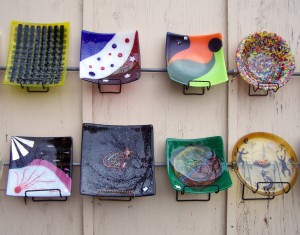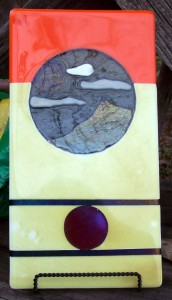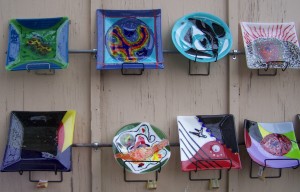Ever since I finished the Adelsverein Trilogy, I’ve wanted to have a German language version out there.
Personal Narrative
DeLeo’s Deli
When I was a baby troop on my first overseas tour, at Misawa AB in Japan, I had a regular date in the form of a guy that Jenny bequeathed to me. Jenny was my friend simply because we were the only two women in the barracks who worked shifts. She was about to rotate out; her tour was up and she was going home.
She also added, by way of convincing me to consider him as a regular date, “A nice guy, he’s a gentleman and he’s always good for a meal, he’s Baby Deleo.”
Looking Ahead, Looking Over My Shoulder
The month of January is associated with the Roman godlet Janus, conventionally pictured with two faces, one looking forward and one looking back. I’m looking forward at 2012 with subdued anticipation, wondering if the new year will be as much of a mixed bag as the old one was. Personally, during 2011, I felt as if I were skidding from one extreme to the other, in between every kind of loss and gain imaginable, both personal and professional. We lost my father, for one the day after Christmas, 2010. Then I had a book to launch early in the year, and the sequel to it to finish in time for the Christmas rush – plus the all-in-one edition of the Trilogy. I had a round of speaking engagements much fun ensuing from those, including keeping a straight face when urged to join the Sons of the Confederacy Ladies’ Auxiliary. I didn’t mention that my ever so-g-g-grandfather the Quaker abolitionist and Underground Railway safe-house keeper probably was a major disqualifier.
I severed a professional relationship with one publisher, and moved over to another, smaller and local publisher. I had sufficient paying projects as a free-lance writer and editor in 2011. Between the freelancing, my books and partnership in the Tiny Local Bidness, I didn’t need to take on a job such as I had to take some years ago, in a telephone call center. I’m starting off this year with a guest appearance on a local internet radio show this Thursday afternoon at three CST on the Yankie Grant Show. For books in the new year? I’ll be working on the research for the next one for sure, a picaresque adventure set in California during the Gold Rush years. I’ve always wanted to write a novel about the Gold Rush, where an extraordinary number and variety of people came to California all at once, seeking their fortunes in the mines or from the miners.
Legacy Pasts

Not by speeches and votes of the majority, are the great questions of the time decided — that was the error of 1848 and 1849 — but by iron and blood.
There are members of the National Association of this association that has achieved a reputation owing to the justness of its demands highly esteemed members who have stated that all standing armies are superfluous. Well, what if a public assembly had this view! Would not a government have to reject this?! There was talk about the “sobriety” of the Prussian people. Yes, the great independence of the individual makes it difficult in Prussia to govern with the constitution (or to consolidate the constitution?); in France things are different, there this individual independence is lacking. A constitutional crisis would not be disgraceful, but honorable instead. Furthermore, we are perhaps too “well-educated” to support a constitution; we are too critical; the ability to assess government measures and records of the public assembly is too common; in the country there are a lot of Catiline characters who have a great interest in upheavals. This may sound paradoxical, but everything proves how hard constitutional life is in Prussia. Furthermore, one is too sensitive about the government’s mistakes; as if it were enough to say “this and that [cabinet] minister made mistakes,[“] as if one wasn’t adversely affected oneself. Public opinion changes, the press is not [the same as] public opinion; one knows how the press is written; members of parliament have a higher duty, to lead opinion, to stand above it. We are too hot-blooded, we have a preference for putting on armor that is too big for our small body; and now we’re actually supposed to utilize it. Germany is not looking to Prussia’s liberalism, but to its power; Bavaria, Württemberg, Baden may indulge liberalism, and yet no one will assign them Prussia’s role; Prussia has to coalesce and concentrate its power for the opportune moment, which has already been missed several times; Prussia’s borders according to the Vienna Treaties [of 1814-15] are not favorable for a healthy, vital state; it is not by speeches and majority resolutions that the great questions of the time are decided that was the big mistake of 1848 and 1849 but by iron and blood.
Pop history sees the trees of “blood and iron” but misses the forest surrounding it: loss aversion. This mental bias intensifies man’s fear of loss, making it a stronger motivator for action than any hope for gain. Since the brain is a narrative computer that discovers truth by linking the most of vivid facts together through the most vivid of events, loss aversion often shows up in the form of negative fables. While positive fables link together facts with events to show how x + y + z = gain, negative fables gloomily argue that x + y + z = loss.
History, a game where the many try force square facts into round fables, often channels loss aversion as “no more” complexs.
Consider:
- No more Lehmans
- No more Iraqs
- No more Afghanistans
- No more September 11ths
- No more Srebrenicas
- No more Rwandas
- No more Vietnams
Is every stand that anyone takes in private or public life is only a thin veneer stretched over a no more complex? If so, history is little more than one no more after another. Otto von Bismarck’s own history, a history that let him to bait the (classical) liberals of the Prussian parliament with provocative talk of “blood and iron”, was strongly motivated by one “no more”: no more Olmützs.
Wonders in Glass
We have made several interesting discoveries while walking the dogs and exploring the Salado Creek Greenway (which is eventually intended to provide a long, green pocket wilderness park all across suburban San Antonio) but I think the very most interesting was nothing to do with the park at all. A particular stretch of the greenway parallels Holbrook Road; just where the road crosses over Salado Creek, there is a low hill with an enormous Southern mansion sitting on the top, white pillars, galleries, ancient oak trees and all. The mansion is called Victoria’s Black Swan Inn; now it’s a wedding and event venue, but originally it was a private home, built just after the Civil War, and on the site of the 1842 Salado Creek Fight. They say it is one of the most haunted places in the United States which it might very well be but that’s not the discovery that my daughter and I made.
That would be what is around in back of the Black Swan; when we noticed a long graveled driveway at the side of the property, and a little sign that said “Glass Studio.”
My mother has tinkered with making stained glass for years, even attempting to teach my daughter some skills in that direction, so we both have an appreciation for it. My daughter said, “Let’s go and see?” so we wandered up the hill, past some extremely eccentric and enormous wind chimes hanging from trees … which seemed to lead nowhere but into a tangle of sheds, aging automobiles and assorted intriguing junk pretty much your basic funky rural collection on stereoids.
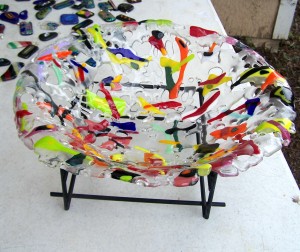
At the top of the hill, the driveway curved around, underneath a tall pecan tree and a huge old wooden water-tank elevated on tall posts and there was the glass studio, housed in a tidy little shed about the size of a suburban bedroom and spilling over onto a couple of tables and an outside wall, in the back-forty of the Black Swan. Mr. Howard Redman the glass artist was there, as he usually is on weekends, and was happy enough to show us his glass creations, his workspace, and his scrapbooks of previous commissions and projects, allowing us to tromp through it all with the dogs and poke into just about everything.
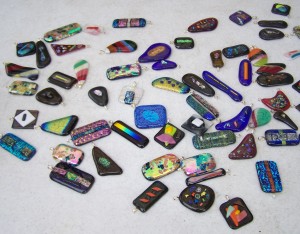
It’s a darned odd place to find a glass gallery, let me tell you: his work is substantial, beautifully done, colorful everything from fused ‘jewels’ made of four separate layers of glass, to bowls on metal stands, platters, replica Tiffany and Frank Lloyd Wright style lamp-shades, hanging window panels and odd little tschockes sun-catchers, votive candle holders and paperweights. But Howard Redmond is in his eighties, and this is semi-retirement and he can do as he damn well pleases, after a whole career working in specialty glass. I looked at some of the panels in his scrapbooks and oh, my; original installations eight feet square, with four of five thousand individual pieces; that is some serious window-glazing, let me tell you.
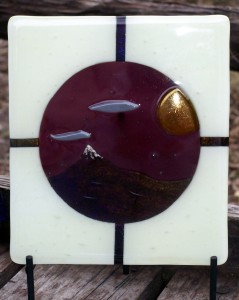
Much of his professional work was done in Chicago, over the last thirty or forty years; I think his output now is more for fun, although he had many of his pieces in local galleries, and he does the occasional craft show. And nope, doesn’t even have a website, or an email address. Either catch him at a one of those shows, or come to San Antonio and search out the Black Swan Inn. Up to the top of the graveled drive, and around past the 1940s ambulance, the rusting restaurant stove, and the fallen-down bottle tree; next to a tall pecan tree and an old wooden water-tank on stilts: He’ll be at work in the little shed under the tree, with two rows of glass platters adorning the side.
